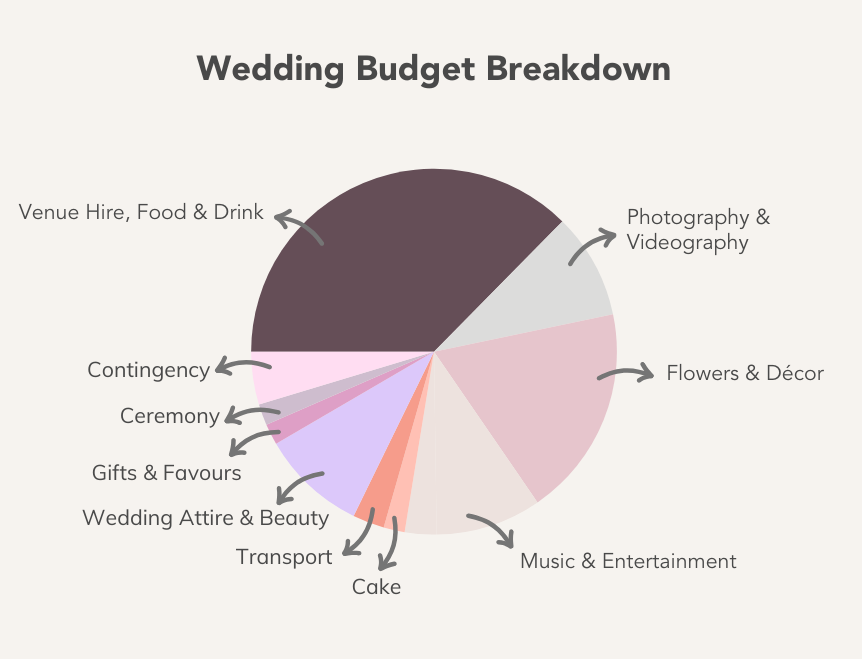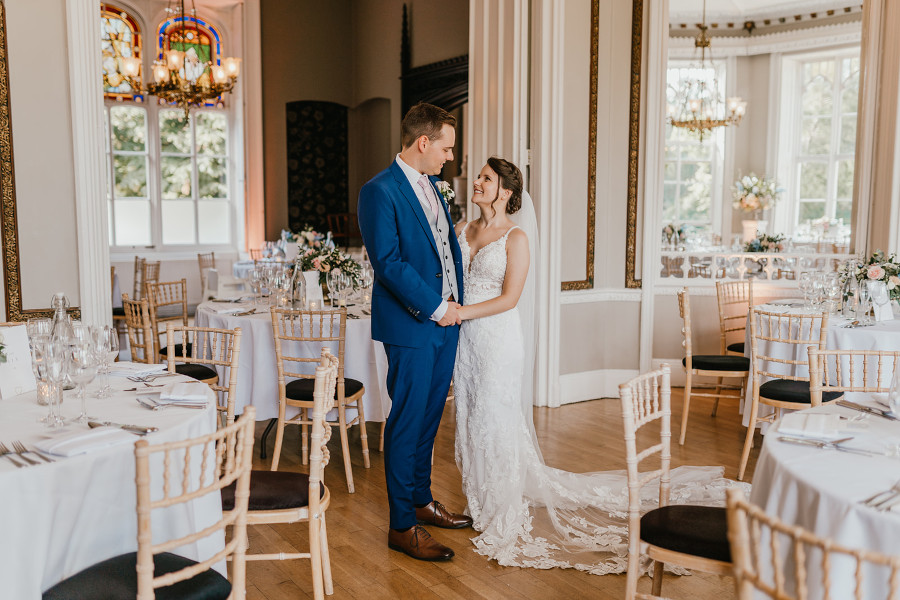One of the very first wedding planning tasks you’ll do is working out much to spend on your wedding. It’s not an exact science and there are no rules on how much you need to spend. Your wedding budget is personal to you, and regardless of how much you think you’ll spend, it’s essential you have a budget.
Nobody likes to talk about money, but it’s the most important part of planning a wedding or event. Making sure you have enough money to pay for your venue and all the suppliers you need is crucial.
Here are my tips to help you create your wedding budget:
The Money Discussion
First things first, discuss with each other how the wedding is going to be paid for. This can be a difficult conversation to have, but it’s important it’s clear from the beginning who’s going to be paying for the wedding.
If parents or family members are making a contribution to your wedding, make sure it’s clear if they have any part in the decision-making process, or if the money is purely a gift for you to spend as you like on your wedding. Once you have clarity on how the wedding will be paid for, you can determine how much you can realistically afford to spend on your wedding.
Set Your Priorities
Work out which aspects of the wedding are the most important to you both, e.g venue, food and wine, photography, entertainment and so on. Prioritising what’s important to you will help you allocate your budget more effectively. Consider the things that are most important to you and where you want to spend more of your budget.
Spreadsheets Are Your Friend
A spreadsheet is the easiest way to keep all the financial information you collate in one place, and gives you an idea of where you are with costs, allowing you to calculate your budget as you go. Track all the costs, and payment dates so you’re on top of the wedding finances.
Budget Breakdown
Typically, the majority of your wedding budget will be spent on the venue hire and food and drink – whether you opt for a marquee, dry hire venue, hotel, or other type of wedding venue, this is where the majority of your wedding budget will be spent. The remaining budget will be allocated to the other elements of your wedding.
Here is a rough breakdown of how your wedding spend will be allocated:
Venue Hire, Food & Drink – 45-55%
This is where most of your wedding budget will be spent. Venue hire, food and drinks will be included in this cost.
Photography & Videography – 10-15%
Depending on your wedding style and priorities, this allocation may be more or less.
Décor & Flowers-20%
Bouquets, buttonholes, ceremony flowers, table centrepieces and other floral elements. Also factor in the cost of decorating your venue.
Music & Entertainment – 10%
Include any live ceremony musicians in this allocation, as well as music for the evening, such as a DJ, live band; and any other entertainment for the wedding day.
Stationery – 3%
Save-the-Dates, invitations, guest place cards, and other printed materials. Don’t forget to include postage for the invitations too.
Cake – 2%
Wedding cake, dessert table or other sweet treats.
Transport – 3%
Include any transport requirements, such as getting to and from the ceremony / reception; and any transport for guests that may be required, such as buses / coaches.
Wedding Attire & Beauty – 10-15%
This includes the wedding dress, alterations, groom’s suit, and any accessories. Don’t forget to include alterationsProfessional hair and make up (if required) is included in this section.
Ceremony – 2%
Any costs associated with the ceremony such as notice fees, registrar fees.
Gifts & Favours – 2%
Include any gifts for the wedding parties, parents, along with any favours in this section.
Contingency – 5%
Allow for a contingency in case of any unexpected costs that come up.
Be mindful of your guest list – each guests costs you money.
For every bottom on a seat you need to pay for food and drinks for them, and in some cases, the chairs to sit on and tables to sit at (if you’re opting for a marquee or dry hire venue). Adding on 5 or 10 guests might not seem a lot, but the costs add up quickly once you’ve added tables and chairs, crockery and glassware, stationery and floral arrangements.
Research & Quotes
Once you have an idea of how much you can spend for each part of the wedding, you can begin researching suppliers and gathering quotes. 3 – 5 quotes per supplier is ideal, giving you an idea of costs, and the ability to compare cost and service offerings for each supplier. Don’t just choose the cheapest supplier – make sure their service and offering aligns with your wedding style and vision.
Be Open To Compromise
As you plan, you may find that some things cost more than you anticipated, while other things cost less. Be prepared to adjust your budget, and priorities (if necessary) accordingly. Flexibility is key to staying within your overall budget while still having the wedding of your dreams. One way to bring your budget down is reducing your guest list.
Read Those Contracts!
Hidden costs can quickly make your budget out of control, so be sure to read the venue and supplier contracts carefully in case of any hidden costs you weren’t aware of. Make sure it’s very clear in the contract what is included in the venue hire / service being provided.
Contingency
Set aside a contingency fund for unexpected expenses. A buffer of around 5% of your total budget will help with peace of mind for any unexpected / additional costs.
Setting your wedding budget can be overwhelming and difficult, but once it’s done you’ll have a clear idea of what you have to spend, and the excitement of planning your wedding can begin.
If you’re struggling with the overwhelm of planning your special day, discover my wedding planning services here, and how I can help.
Image credits: Shelby Ellis Photography



